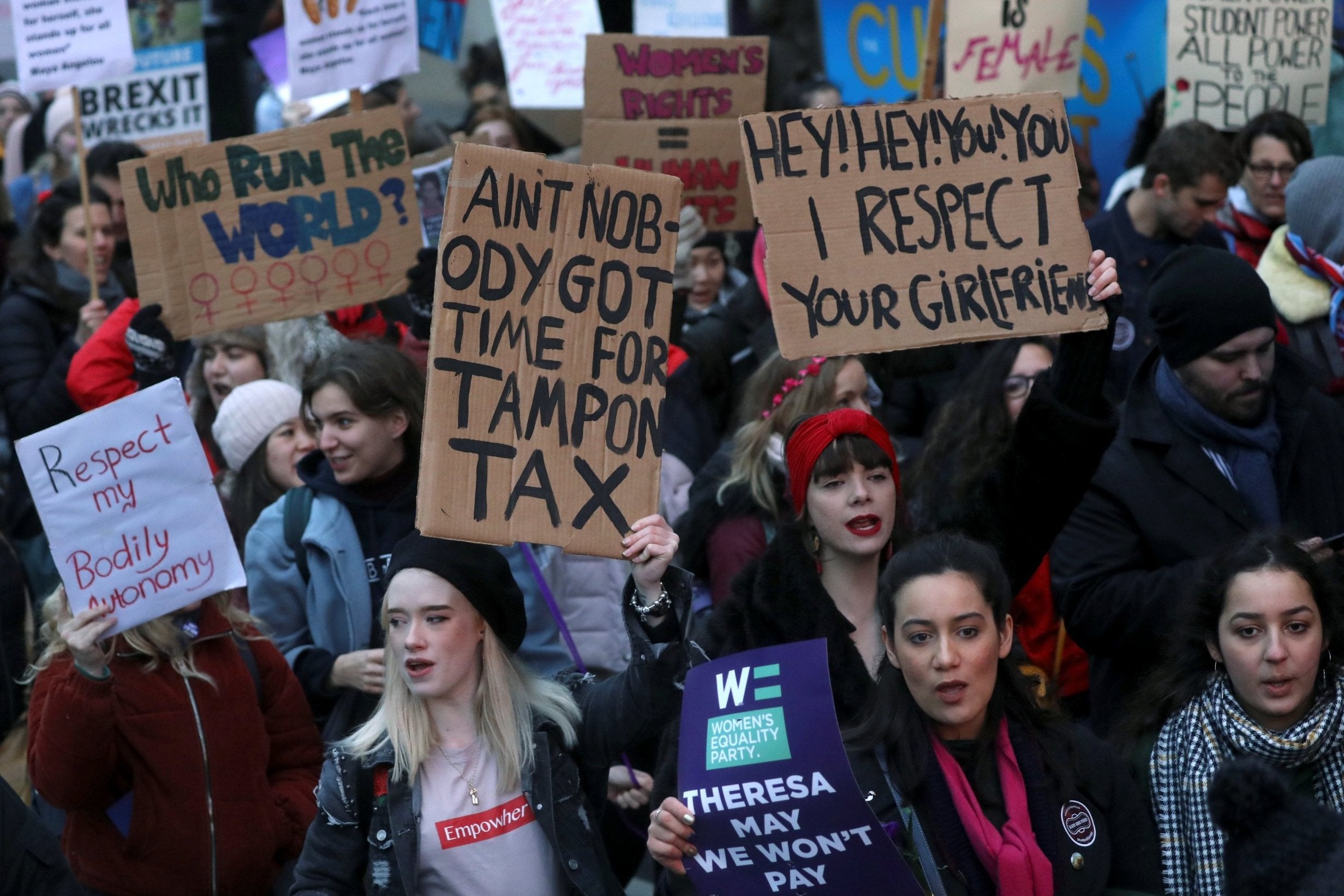I won’t be joining today's Women’s March – and this is why
The reality is that MeToo, anti-Trump and feminist marches haven’t changed the day-to-day realities of being a woman for most of us – open conversation is so much more important


Your support helps us to tell the story
From reproductive rights to climate change to Big Tech, The Independent is on the ground when the story is developing. Whether it's investigating the financials of Elon Musk's pro-Trump PAC or producing our latest documentary, 'The A Word', which shines a light on the American women fighting for reproductive rights, we know how important it is to parse out the facts from the messaging.
At such a critical moment in US history, we need reporters on the ground. Your donation allows us to keep sending journalists to speak to both sides of the story.
The Independent is trusted by Americans across the entire political spectrum. And unlike many other quality news outlets, we choose not to lock Americans out of our reporting and analysis with paywalls. We believe quality journalism should be available to everyone, paid for by those who can afford it.
Your support makes all the difference.It was heartbreaking when a year into the Me Too and Time’s Up movements, after all the marches, the street protests and the chants, some of those same women who bravely shared their powerful stories with the world said they felt like no real changes had been made.
As a result though, the Women’s March was the biggest single-day protest in US history. It boosted morale, spreading important messages and saw countless inspiring bystanders. I’ve been a part of many women’s marches myself – whether it was campaigning against everyday sexism, fighting for gender equality in all its forms, or getting behind the women of MeToo. Today, there will be another series of marches, but I feel they have served their purpose for a time, and now it’s time to start talking. The marches can and have only taken us so far.
There’s power in conversation. There’s power in coming together with men in conversation to move forward to educate others on the injustices a lot of women continually face. There’s power in the spoken word, as well as the stomp of the foot.
The Young Women’s Trust (YWT) – a charity which supports young women on low or no pay – has released a recent report which finds that one year from the start of the Me Too movement, 32 per cent of young women don’t know how to report sexual harassment at work, while 24 per cent say that they would be reluctant to do so for fear of losing their job.
The reality is that MeToo, anti-Trump and feminist marches haven’t changed the day-to-day realities of being a woman for most of us. Marches have helped women’s anger become a public conversation, but the question still exists as to whether our marching can become a true catalyst for political change. I read that protest is the “new brunch”, that people are “only marching for the Instagram feeds”, or those marching are simply members of the ticked off “snowflake generation” as they protest about some offence taken, instead of demonstrating for political change. While I disagree with this outlook, change has been painfully slow and women’s anger, however justified it may be, has not automatically converted into progress.
Today, I will still get that creepy catcall down the street by a man twice my age, I will still be faced with that guy who thinks it’s OK to walk past me in a bar with his hands wrapped tightly just above my bum, I will still experience guys at the gym telling me how to lift weights and I’ll still come across embarrassing machismo and misogyny.
Everyday sexism is still very much living and breathing, and it’s perpetrated by men who aren’t affected by our cries and emotive posters – that much is clear. I believe having a conversation with them might, though.
Nathan Heller wrote in The New Yorker that: “Activists today speak more about numbers and reach than about lasting results. Is protest a productive use of our political attention? Or is it just a bit of social theatre we perform to make ourselves feel virtuous, useful, and in the right?”
In Inventing the Future: Postcapitalism and a World Without Work, a book published in 2015, then updated in 2018, Nick Srnicek and Alex Williams question the power of marches, protests, and other acts of what they call “folk politics”. They say these methods are more habit than solution and that protest is too fleeting. It ignores the structural nature of problems in a modern world. “The folk-political injunction is to reduce complexity down to a human scale,” they write.
“This is politics transmitted into pastime – politics-as-drug-experience, perhaps – rather than anything capable of transforming society,” Srnicek and Williams write. “If we look at the protests today as an exercise in public awareness, they appear to have had mixed success at best. Their messages are mangled by an unsympathetic media smitten by images of property destruction – assuming that the media even acknowledges a form of contention that has become increasingly repetitive and boring.”
This year I’m going to skip marching, but have challenged myself to have a real and honest conversation with every man who I have a run-in or disagreement with – whether that’s in the gym, at work, or a coffee shop.
Some of my favourite people in my life are men and when us women come together with them, we’re stronger. We complement each other. We’re better when we’re in the fight together. Joining forces not just for marches, but in conversations too, to take on the different issues and ignorances that are happening right now with other men. We need to make the chat wide, accessible and inclusive for everyone.
The author Linda Lambert famously once said, “One good conversation can shift the direction of change forever.” She’s quite right.
Join our commenting forum
Join thought-provoking conversations, follow other Independent readers and see their replies
Comments